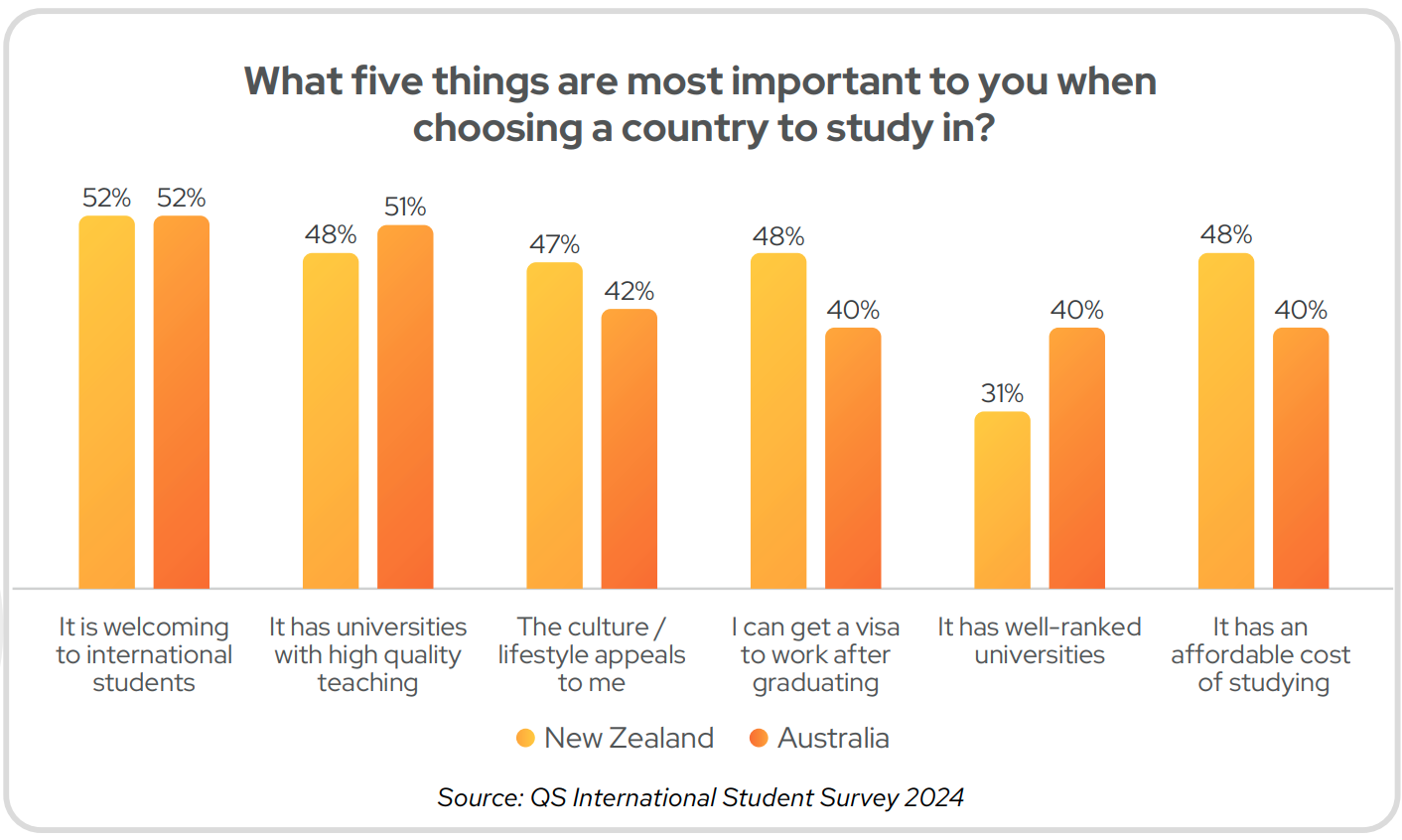
Destination: Australia and New Zealand is a report based on the QS International Student Survey 2024 to help universities create a more responsive student recruitment strategy. We’ve analysed the perspectives of 37,488 students interested in Australia and 11,906 interested in New Zealand.
Key findings from 43,138 students interested in studying in Australia and New Zealand
Over half of students are using Generative AI technologies
64% of students looking to study in Australia and New Zealand have used or interacted with Generative AI technologies. Chat GPT is the most used platform, with 49% of prospective students using it.
Action matters most when it comes to environmental sustainability
Over 70% of students looking to study in ANZ said on-campus initiatives were important when judging whether a university is sustainable. Over 60% said environmental sustainability is very or extremely important to them.
A welcoming environment is the number one draw for students interested in studying in ANZ
When choosing a country, town, or city a welcoming environment is the most important thing to students. But when choosing a university, the most important factors differ. High-quality teaching for those looking to study in Australia, a welcoming environment for New Zealand.
YouTube is the top social platform for finding a university
56% of those interested in Australia (54% in New Zealand) use YouTube to research universities. The second largest is Instagram (49% Australia, 44% New Zealand).
Independent recognition is vital in assessing a university’s teaching quality.
For those looking to study in ANZ, recognition via a nationwide scheme or independent ratings indicate high-quality teaching. To seem high-quality, for those looking to study in Australia, a university needs to receive recognition from a nationwide scheme or independent ranking.
Half of all respondents attended a student recruitment event
Fairs and events remain a key influencer in the decision-making process with 66% saying they’d attended an in-person student recruitment fair. 62% said they attended a fair organised by an education agency.

Our recommendations for universities in Australia and New Zealand
- Universities should be transparent about how they use AI technology and how students will engage with it on their course. With increasing focus on the environmental and social impact of Generative AI, universities should consider this when promoting Generative AI usage.
- Universities should ensure that sustainability features as a key part of student recruitment marketing activity, taking care to detail the specific strategies, on-campus initiatives, research and support for students. Where environmental and social sustainability is embedded within the curriculum, this information should be made clear and emphasise the skills and benefits of what will be learned.
- Use ranking and ratings to show that your teaching is high-quality, and deliver this key message prominently across marketing channels. ANZ universities should also look for opportunities to evidence a welcoming environment, whether on-campus or nationally.
- Continue to use video as part of your student recruitment strategy. YouTube and Instagram are the most used platforms – be present on these platforms and deliver the messages students want to hear – about high-quality teaching and a welcoming environment – using engaging visual content.
Discover more insights
Read Destination: Australia and New Zealand to find out what prospective students also think about:
- The teaching and learning experience
- The process of applying to university
- Sustainability, employability, and Generative AI
- Plus, a specific look at the perspectives of students from Asia Pacific looking to study in Australia and New Zealand